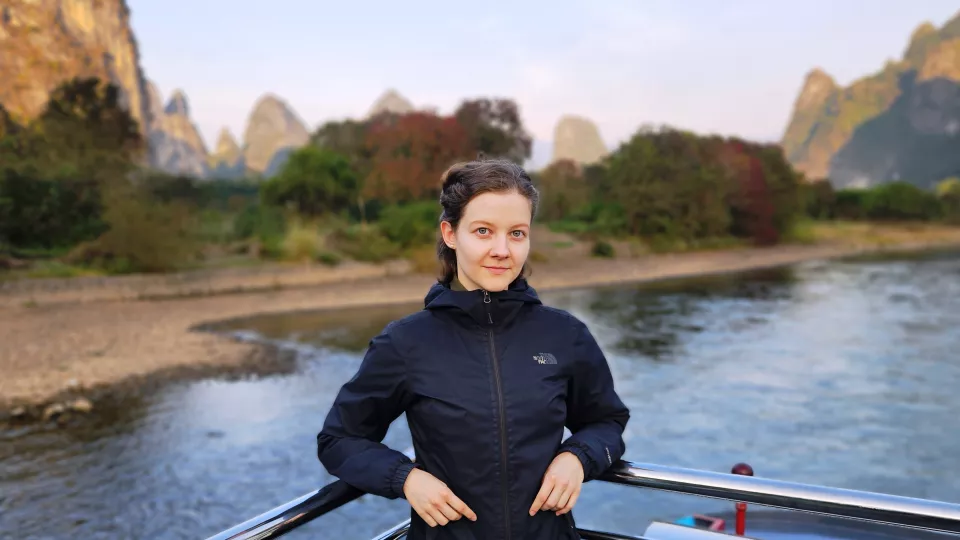The Centre for European Studies reached out to Linda to ask her a few questions regarding the thesis and her experience writing it.
First, how did you become interested in the topic of EU enlargement, and the case of Switzerland?
Having lived and studied in several EU countries, I've experienced lots of benefits from being part of the EU. That got me thinking about Switzerland and why it chose not to join in 1995 (and why it still chooses so). Switzerland's unique stance, with its decision to not join the EU despite its geographical location in the heart of Europe, raises questions and interest, especially now, in an era of growing EU skepticism and populism among many member states.
Your thesis has been published at a time when the topic of enlargement is very pertinent. Following the Russian full-scale invasion of Ukraine, the ambition to enlarge the Union has once again sailed up on the list of priorities of the EU. As a result of those ambitions, the EU recently decided to open accession negotiations with Ukraine and Moldova, alongside granting Georgia a candidate status. For students who wish to study EU enlargement and are yet to specify their specific focus, are there any interesting research gaps you could recommend that you have identified during your writing process?
It would be interesting to analyze Norway as another, even closer, version of European integration without full membership, allowing for a comparison of different stages of European integration. In my thesis, I focus on bilateral trade flows as my outcome variable. It would be interesting to explore the topic with different outcome variables to get a more complete picture of the costs and benefits of European integration. Also, there is still a lot of research to be done when it comes to Brexit or more recent eastern enlargements.
Your thesis was praised by the jury for its “advanced methodological approach”. Can you tell me a bit about the method, and why you chose the synthetical control method to investigate your case? Are there other topics within the study of European Integration in which you would see fit to use a similar method?
The synthetic control method is a statistical technique that allows for the evaluation of a certain treatment or intervention. It creates a synthetic control group by combining elements from different control units that resemble the treated unit before the intervention. The synthetic control method is an especially good fit for my thesis question because it allows for the creation of a synthetic Switzerland that can be compared to the real Switzerland to analyze the causal effects of a counterfactual European integration. A similar approach has been used to study the effects of Brexit on various outcome variables or to analyze the eastern enlargements of the European Union.
What has the experience of writing a master thesis been like, and what are your key takeaways from the process?
Writing a master's thesis is an intense but rewarding experience. It's a learning process that demands a significant amount of time, dedication, and perseverance. My key takeaway from the process is not to give up easily, even when it seems there is no immediate solution to the problem you are facing.
What advice would you give students who are going to begin writing their master's thesis in the spring?
Approach the process systematically, start early, stay committed to your interests, and develop a supportive relationship with your supervisor. A good supervisor can provide invaluable insight and aid throughout your thesis journey, so choose your supervisor wisely (special thanks to my supervisor Maria Persson!). Also, facing challenges is part of the journey, so don't stress too much if things don't work out immediately - be a bit stubborn.
Lastly, congratulations on receiving an honorary mention for your master's thesis, and thank you for taking the time!
Thank you, I am very happy to receive this honorary mention for my thesis!
Linda is currently holding a pre-doctoral research position at the Stockholm School of Economics, getting ready to apply for a PhD in Economics for the fall term.
Neubauer received the award with the following motivation: “Linda Neubauer’s thesis, 'European Integration and Switzerland: A Synthetic Control Analysis of Switzerland’s Trade Potential if Switzerland Had Joined the European Union,' is an economic analysis of remarkably high quality. It excels in both the linguistic and structural aspects of the thesis, as well as in the author's advanced methodological approach. The central question of the thesis revolves around whether Switzerland would have experienced increased bilateral trade had the country joined the EU in 1995. Using a synthetic control method, Neubauer conducts a counterfactual analysis by estimating the hypothetical, so-called synthetic, trade flows (derived from Austria, Sweden, and Finland’s, and others, trade data). Comparing Switzerland’s actual trade flows from 1995 to 2008 with these estimates reveals that the country has paid a surprisingly low price for its decision to remain outside the EU. This result constitutes a significant scientific contribution to the field of European economic integration.”


